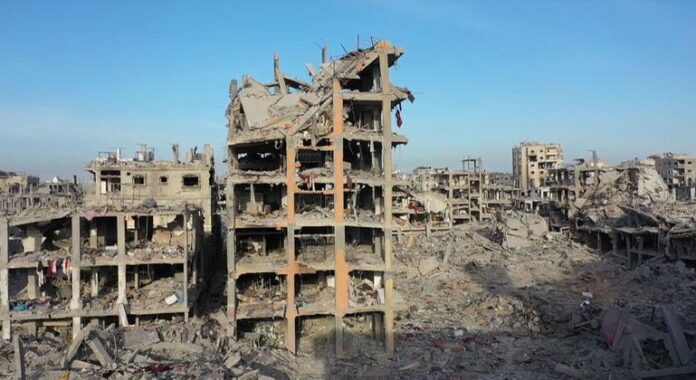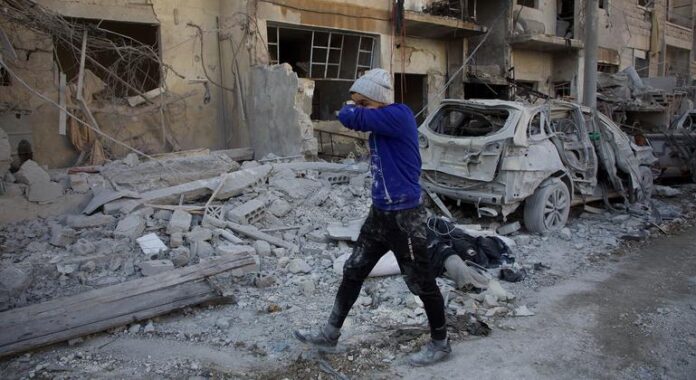The Gaza ceasefire offers a rare opportunity to end one of the most destructive phases of the Israeli-Palestinian conflict, the UN deputy Middle East envoy has said. Security Council THURSDAY.
Deputy Special Coordinator Ramiz Alakbarov warned that without decisive support for reconstruction and aid delivery, the region risks falling back into violence.
The fragile truce, achieved through broad agreement on President Donald Trump’s 20-point plan earlier this month, created “a momentous but precarious moment,” he said.
“The agreement represents hope for a better future, but the dynamic is extremely fragile“, he said. “A return to conflict must be avoided at all costs.»
Alakbarov praised the mediation efforts of the United States, Qatar, Egypt and Turkey, calling the ceasefire a “crucial breakthrough” that must be consolidated through restraint and cooperation.
He demanded the immediate return of the remains of the deceased hostages and called for humanitarian aid to enter the enclave “on a large scale” to respond to what he described as “enormous and urgent needs.»
A panoramic view of the Security Council meeting, as Mr. Alakbarov (on screen) briefs members.
There is still a lot to do
Since the truce came into effect, the UN and its partners have expanded their relief operations in Gaza. Alakbarov highlighted the UN’s 60-day humanitarian plan, launched to streamline customs procedures, increase access roads and restore basic services, adding that the aid flow increased by 46 percent during the first week of the ceasefire.
But he warned that access remained limited.
“There is still much to do,” he said, citing the need to increase the number of crossings, ensure safe passage for humanitarian workers and ensure the continued entry of fuel and essential goods.
Ongoing violence – including Israeli strikes, attacks by Palestinian militants and apparent reprisals by armed groups – continues to undermine relief efforts and the stability of the territory, he added.
Situation in the West Bank
Regarding the West Bank, Alakbarov expressed concern over large-scale Israeli security operations, settler violence and Israel’s continued withholding of Palestinian tax revenues.
“Palestinians must be allowed to return home and local economies must function,» he said.
The Deputy Envoy also noted the International Court of Justice (ICJ) advisory opinion issued on Wednesday which was welcomed by the Secretary-General, affirming Israel’s obligation, as the occupying power, to facilitate humanitarian assistance and to cooperate fully with the UN and its agencies.
Cairo Conference on Reconstruction
Looking ahead, Alakbarov said reconstruction must be led by Palestinians, with strong support from regional and international partners.
The upcoming Cairo Reconstruction Conference – co-hosted by Egypt, the Palestinian Authority and the UN – is “an important venue to advance the recovery and reconstruction of Gaza,” he said.
He added that recent international initiatives – including the Sharm el-Sheikh Peace Summit and the Global Alliance for the Implementation of the Two-State Solution – had generated “renewed momentum” towards ending the conflict and restoring a viable political horizon.
Mr. Alakbarov said the UN remains committed to resolving the Israeli-Palestinian conflict in accordance with international law and resolutions, achieving a two-state solution, with Israel and Palestine “living side by side in peace and security within recognized borders based on pre-1967 lines, with Jerusalem as the capital of both states.”
Originally published at Almouwatin.com









